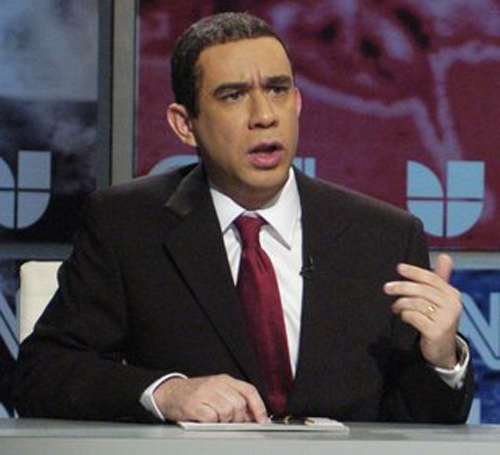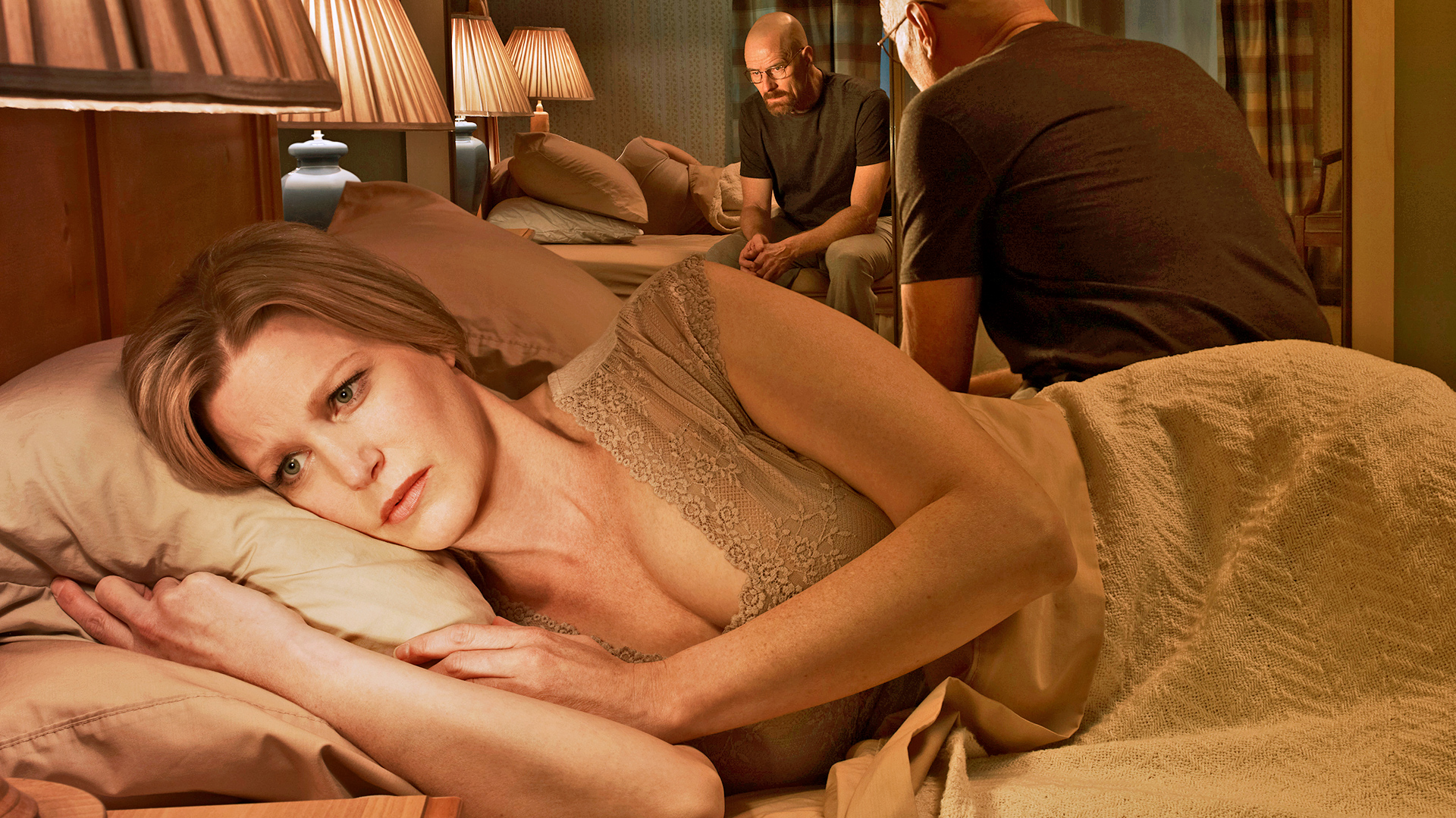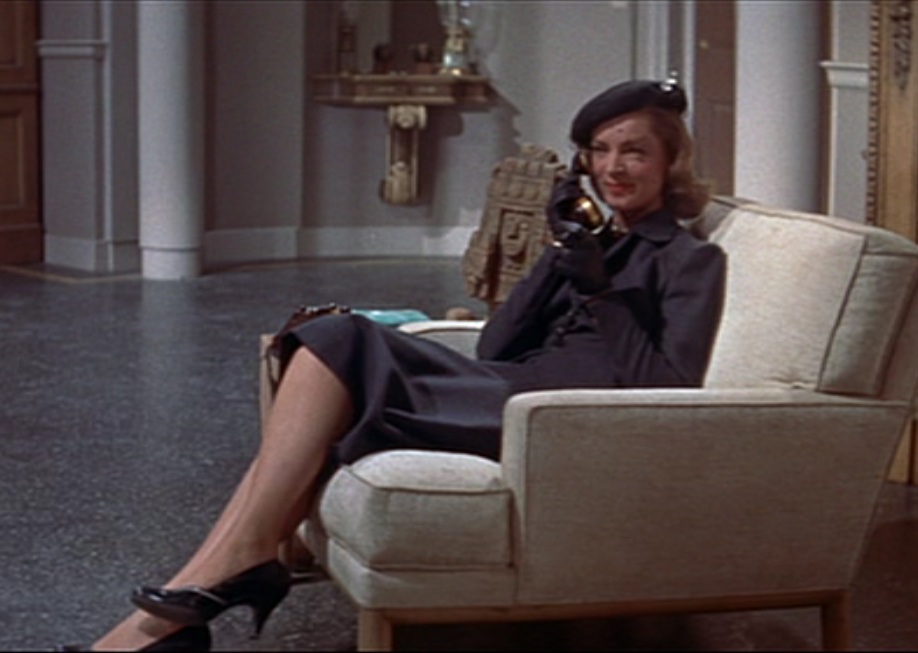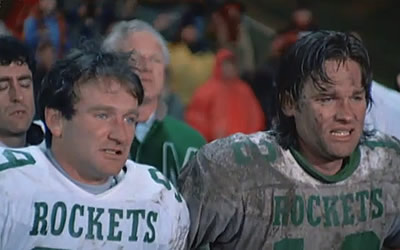Okay, let's talk about the Emmys--as they happened while I was watching, but all at once for you. Nothing I like better than seeing rich people pat themselves on the back.
Seth Meyers comes out, does his monologue. Takes a swipe at
Orange Is The New Black submitted as a comedy. Don't care, let's get to the awards.
Amy Poehler walks up from the audience to give an award. A little strange. Best Supporting Actor In A Comedy. Usually a strong category. Will
Modern Family get it? Yep, it's Ty Burrell, who wins for a second time. Hard to complain. Unless you're Ed O'Neill or Jesse Tyler Ferguson, who haven't won from the show yet. (The speech is allegedly written by the kids on the show who note they never get nominated.)
Next up, comedy writing in a sitcom. An important category, though it's unclear who the favorite is. Maybe
Veep should win, or
Silicon Valley, but there's no
Modern Family or a ton of other good stuff. Alas, Academy fave Louis CK, who has a fine show, but was up for a monologue about how tough fat women have it, wins.
Supporting Actress in comedy series (including
SNL, for some reason). Stronger category than the men's this year. The winner, alas, is the weakest in the group--Academy favorite Allison Janney, for
Mom, who won one (also undeserved) already this year.
Next, Comedy Directing. Is this a big deal? This is TV, not movies, directors do what they're told. Some big names here, like Mike Judge, Jodie Foster and Louis CK. The winner is Gail Mancuso, who's won before for
Modern Family, and deserves to win again for her fine work in the farcical Vegas episode.
There's a comedy bit with on-the-street interviews which allows me to go to the bathroom.
Lead Actor in a comedy. So all the comedy first, I guess. Big names, again. Louis CK (again), Don Cheadle, Ricky Gervais, Matt LeBlanc, William H. Macy and Jim Parsons. All meant something before their show except for the winner, Jim Parsons. This is his fourth win. Enough. My idea has long been once you win an Emmy for a part you're retired from the award until you play something else.
Lead Actress in a comedy. Very little suspense--it would be a shock if Julia Louis-Dreyfus didn't win again. And she does. She wins for the third year in a row--
Veep has only been on three years--and she deserves it.
Reality competition program. Who cares?
The Amazing Race wins this award for the tenth time, but I still refuse to watch it.
Another comedy bit involving stars in the audience. Not bad, but I'm still thinking how much faster this show would move if they just gave out awards.
Outstanding miniseries or movie or special writing. This is a gimme for
Fargo, isn't it? They're not going to give it to
The Normal Heart, will they? Sort of a shock--Steven Moffat for
Sherlock, which I don't watch. Maybe not everything will be predictable tonight.
Supporting Actress for miniseries or movie. Lock of the night. It'll be Allison Tolman for
Fargo, beating Julia Roberts and some other big names. But a shock--Kathy Bates for
American Horror Story. Halfway to an EGOT, Kathy--too bad you didn't win that Tony for
'night, Mother. Guess the
Fargo bandwagon isn't as strong as people thought. And they're not that impressed with
The Normal Heart either.(Does this also mean trouble for
True Detective. And should it have submitted itself in this category?)
Supporting Actor for miniseries or movie. Presenter Stephen Colbert comes out an commits to a bit that isn't working. Two-thirds of the nominees are for
The Normal Heart, but Martin Freeman wins for
Sherlock. Guess show biz people don't like gays.
Directing for miniseries, etc. Two directors up for
Fargo--will that split the vote (and does the Academy care to begin with)? Hey, Colin Bucksey wins for
Fargo. So it's only
The Normal Heart that looks like it'll be skunked.
Seth and Amy takes a long time to introduce presenters Woody Harrelson and Matthew McConaughey. They're here for Lead Actor in miniseries etc. Some solid names (and another shot for Martin Freeman, but this time up for
Fargo--if anyone wins for that show, though, it'll be Billy Bob Thornton.) No surprise, Benedict Cumberbatch beating out bigger names for
Sherlock--the Academy obviously loves this show.
Lead Actress for same category. Once again, big names. It'd be great if Kristen Wiig won for a comic performance in
Spoils Of Babylon, but--no surprise--Jessica Lange wins it for
American Horror Story. She's already got the E in the EGOT, though.
Weird Al Yankovic comes out and sings some TV themes with his own words--just the thing you'd expect him to do.
Top miniseries. Is this
Fargo's big moment? Yes, it is. Once again, lucky
True Detective wasn't up for this. Now top television movie--a separate (and not that great) category, but a chance for
The Normal Heart to finally take something. Or will
Sherlock stomp it again? Nope, the pull of class and Important Issues is too great for the Academy and
The Normal Heart takes it.
Ricky Gervais comes out and complains he's lost 19 out of 21 times at the Emmys. That's a problem? (Though if he'd beat Jim Parsons for his title role in
Derek it wouldn't have been a bad choice.) He presents Writing for a variety special. The most likely winner is Billy Crystal for his one-man Broadway show--is that variety? A slight surprise--Sarah Silverman for her comedy special--another non-variety show, seems to me.
Director for variety show. The Tony Awards wins. Really? Seems like an inside job when Glenn Weiss accepts the award from the booth, as he's directing the Emmys, too.
Best Variety series. Please, not Jon Stewart again. (Or Colbert.) By the way, Fallon and Kimmel and Bill Maher are up, but not Letterman. Has he aged himself out of the process? Colbert wins for the second year in a row. Colbert is the new Stewart.
Two hours down, one (we hope) to go. And we'll soon be getting to the best category, drama.
We start with Supporting Actor in a drama. Great category--Peter Dinklage (former winner), Aaron Paul (double winner), Mandy Patinkin (Tony winner), Jim Carter (does anyone still care about
Downton Abbey?), Jon Voight (Oscar winner) and Josh Charles. Aaron Paul takes it. I might have preferred Patinkin or Dinklgae, but this is fine--too bad some excellent co-stars on
Breaking Bad never won this--often beaten by Paul himself. Is this the start of a lot of love for
Breaking Bad as it goes off into the wild blue yonder?
The in memoriam section, followed by a tribute to Robin Williams from Emmy loser Billy Crystal.
Directing of a drama series. Shows are
Boardwalk Empire,
Breaking Bad,
Downton Abbey,
Game Of Thrones, House Of Cards and
True Detective. First real test of
True Detective, and it wins. And it should--the location shooting on that show was amazing. Looks like it may be their night. Why not? Everyone but
The New Yorker loved it.
Supporting Actress in drama. Two from
Downton Abbey and one each from
Breaking Bad,
Game Of Thrones,
The Good Wife,
Mad Men (Christina Hendricks, will you ever win? Probably not). Anna Gunn wins her second in a row for
Breaking Bad. Maybe the voters just feel bad for everything Sklyer's been through? Does this make
BB favored over
TD?
Writing for drama--a major award. Two
Breaking Bad's--will that split the vote? One
Game Of Thrones, one
House Of Cards and one
True Detective. Notice there's no
Mad Men, no Aaron Sorkin, no a whole lot of stuff. Moira Walley-Beckett wins for what many consider to be the hugest episode of
Breaking Bad ever, "Ozymandias." Luck of the draw, but she was up to it when they broke down the stories. And it's looking like a
Breaking Bad night.
Lead Actress in a drama. Claire Danes in
Homeland has won twice in a row, but the year before that Julianna Margulies won for
The Good Wife. And she's good again. Julianna wins. (Would have been fun to see Lizzy Caplan win, even if she didn't quite deserve it.)
Oscar winner and Emmy loser Julia Roberts comes out to present the Lead Actor in a drama. The real drama of the night. Bryan Cranston (multiple winner), Jeff Daniels (won last year), Jon Hamm (nominated every year but never wins), Woody Harrelson (if anyone wins from
TD it won't be him), Matthew McConaughey (already won the Oscar this year) and Kevin Spacey (Oscar and Tony winner). Matthew is the favorite, but it is Bryan Cranston's last chance to win--and he takes it! He's won four times for Walter White, and McConaughey will have to be happy with his lonely Oscar.
Jay Leno shows up--just try to keep him off NBC. They're going to sneak in Best Comedy before the Best Drama. Will
Modern Family win it five years in a row, the only show to do it other than the undeserving
Frasier? Or is
Orange The New Black? There's also
Veep,
Louie,
The Big Bang Theory and
Silicon Valley, all worthy. No surprises this year--
Modern Family takes it again. Hey, it's a good show, but is it that good? (Of course, they never nominated
Community, or anything this year on NBC, so what are you gonna do?)
Oscar-winning Halle Berry presents the Best Drama award. The choices--
Downton Abbey,
Game Of Thrones,
House Of Cards and
Mad Men. Oh yeah, also
Breaking Bad and
True Detective. (Bet the latter is starting to think maybe we should have gone for best miniseries.) And the winner--not exactly a shock at this point--is
Breaking Bad. It won this last year, too, and it's the big winner of the night. Vince Gilligan knows how to go out big (unlike Matthew Weiner, it would seem).
Biggest surprise of the night--the show ends at the three hour point.


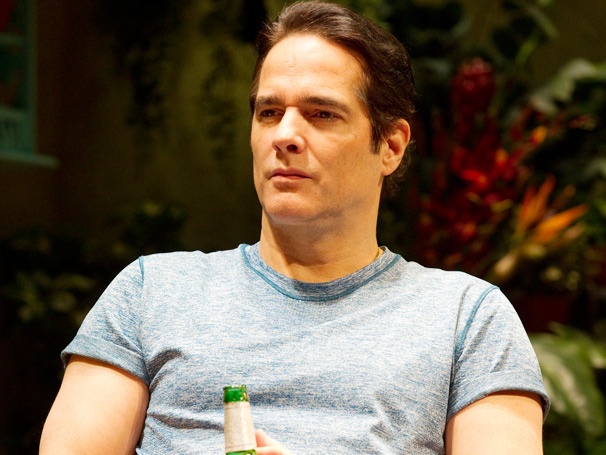




.jpg)


